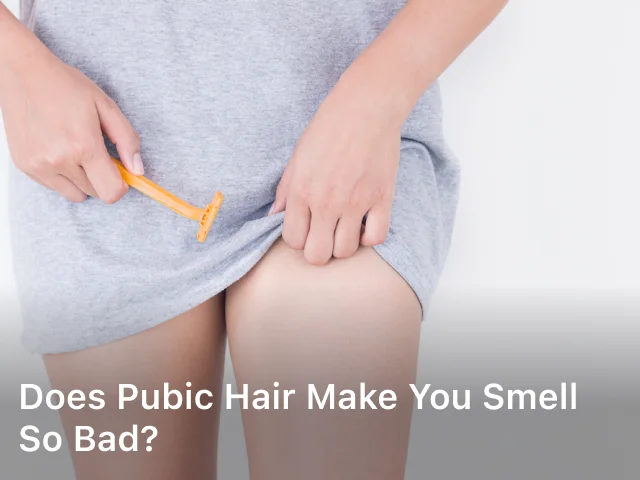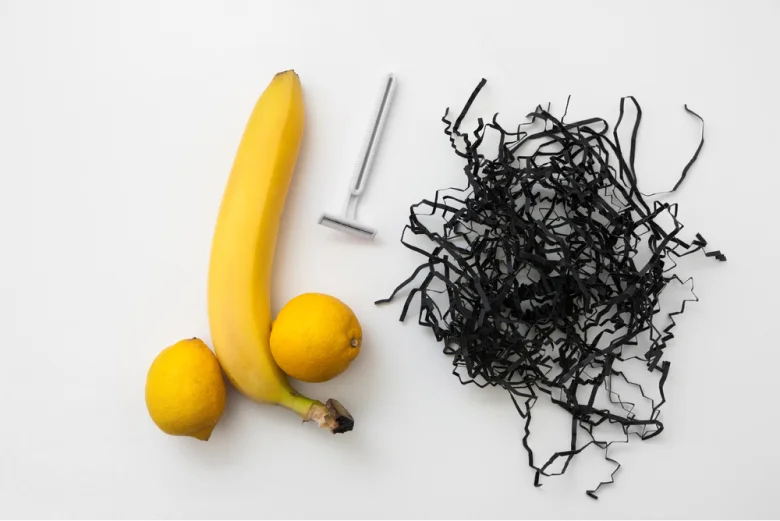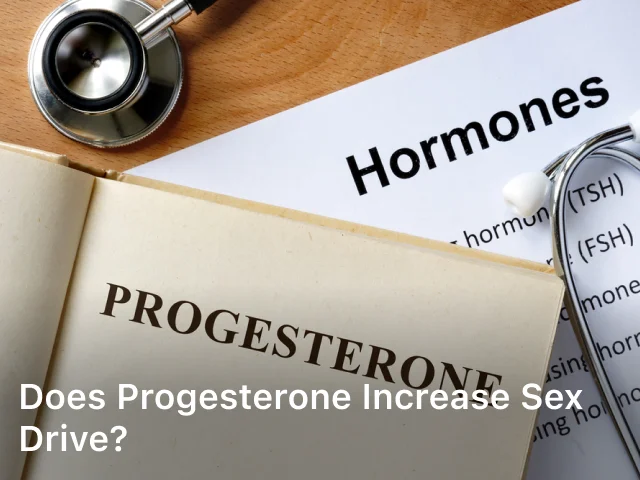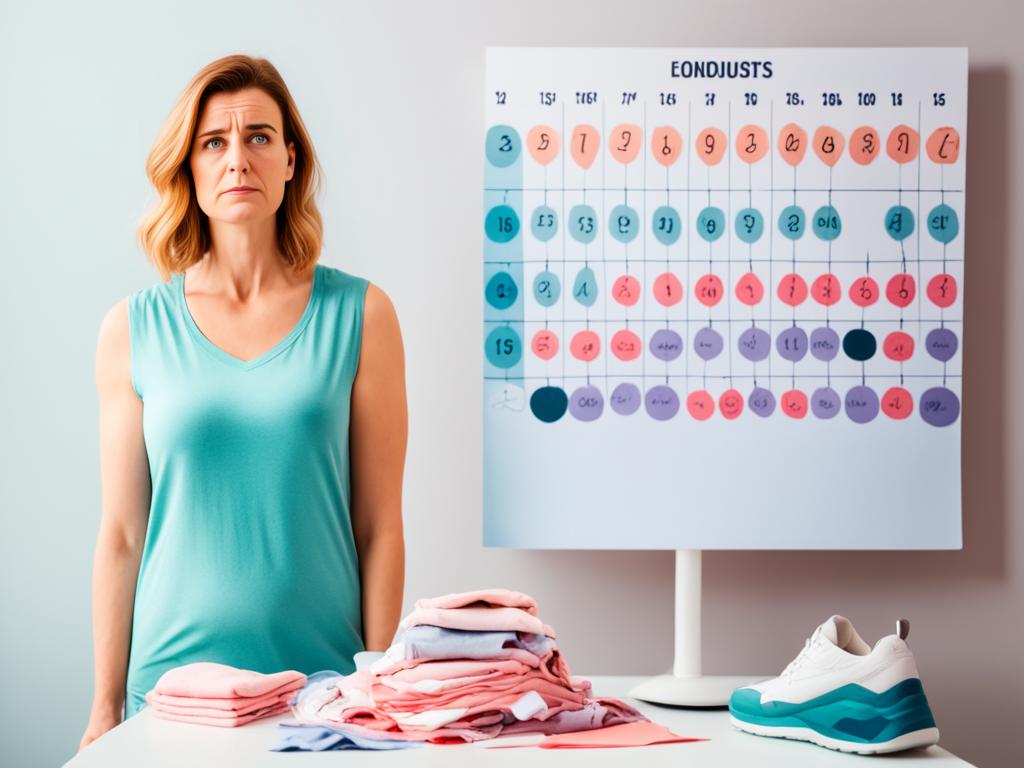Does Pubic Hair Make You Smell So Bad?

fitguideguru.com. Does Pubic Hair Make You Smell So Bad? Curious about the impact of pubic hair on body odor? This article delves into the science and hygiene aspects, answering your questions and dispelling myths.
Pubic hair – an aspect of our bodies that has long been a subject of curiosity and debate. Many people wonder, “Does pubic hair make you smell?” This question often arises due to concerns about hygiene and body odor. In this comprehensive article, we will explore this topic in detail, addressing myths, providing informative insights, and ensuring you have all the facts. So, let’s get started.
The Purpose of Pubic Hair
The purpose of pubic hair is an intriguing aspect of human biology, and it serves several essential functions in the human body. These functions have evolved over time to provide a range of benefits:
Protection: One of the primary roles of pubic hair is to act as a protective barrier for the genital region. Pubic hair helps safeguard sensitive areas from friction, potential injuries, and environmental factors. In essence, it serves as a natural shield, reducing the risk of chafing, abrasions, and the entry of foreign particles or pathogens.
Thermoregulation: Just like other body hair, pubic hair plays a crucial role in thermoregulation, which is the body’s ability to regulate its temperature. This is particularly important in regions where temperature extremes can be a concern. During cold weather, pubic hair can help to retain heat by trapping a layer of warm air close to the body, contributing to overall warmth and comfort. Conversely, in hot weather, it can help in heat dissipation by allowing air circulation, thus aiding in cooling the body.
Sensory Function: Pubic hair also serves a sensory function. The hair follicles in the pubic region are connected to nerve endings, which means that they can transmit sensory information. This can be particularly useful in terms of detecting touch or changes in the environment. The presence of pubic hair enhances the sensitivity and responsiveness of the genital region.
Pheromone Distribution: Some researchers suggest that pubic hair may play a role in the distribution of pheromones, which are chemical signals that influence various social and reproductive behaviors in humans. While the extent of this role is still debated, it’s possible that pubic hair contributes to the spread of these chemical signals.
Cultural and Sexual Significance: Beyond its biological functions, pubic hair also holds cultural and sexual significance for many people. Cultural norms, aesthetic preferences, and personal choices all influence how individuals manage or groom their pubic hair. It can be a means of self-expression and a component of one’s body image.
Puberty and Sexual Maturity: The development of pubic hair is also closely associated with the onset of sexual maturity during puberty. It is one of the secondary sexual characteristics that appear as individuals enter adolescence, signifying the transition to reproductive readiness.
It’s important to note that the presence or absence of pubic hair is a matter of personal choice. Some individuals prefer to groom, trim, or remove their pubic hair, while others choose to leave it in its natural state. Regardless of these choices, understanding the biological functions and purposes of pubic hair can provide insight into its importance and significance in the human body.

Understanding Body Odor
Understanding body odor involves delving into the complex interaction of sweat and bacteria on the skin’s surface, as well as the factors that influence this natural physiological process. Body odor is a pervasive and often perplexing aspect of human existence that has been the subject of both scientific inquiry and societal norms.
Sweat and Its Composition:
Sweat, or perspiration, is produced by sweat glands found throughout the body. There are two primary types of sweat glands: eccrine and apocrine glands. Eccrine glands are distributed all over the body and produce a clear, watery sweat primarily composed of water and electrolytes. This sweat serves the essential function of regulating body temperature by cooling the skin when it evaporates.
On the other hand, apocrine glands, located predominantly in the axillary (armpit) and pubic regions, produce a thicker and more complex form of sweat. Apocrine sweat contains proteins and lipids, which provide a nutrient-rich environment for the bacteria residing on the skin.
Bacterial Activity:
Body odor results from the interaction between sweat and bacteria on the skin’s surface. As sweat is released from the eccrine and apocrine glands, it provides a medium for bacteria to thrive. These bacteria break down the components of sweat, particularly those found in apocrine sweat, leading to the production of various compounds, some of which are malodorous.
The breakdown of sweat by bacteria results in the creation of volatile organic compounds (VOCs), which are responsible for the characteristic smell of body odor. Some of the most common VOCs in body odor include butyric acid, isovaleric acid, and propionic acid, which have a distinct and often unpleasant odor.
Factors Influencing Body Odor:
Several factors influence an individual’s body odor, including:
- Hormones: Hormonal changes, such as those that occur during puberty or pregnancy, can affect the composition of sweat and, consequently, body odor.
- Diet: The foods and beverages one consumes can impact body odor. Certain foods, like garlic and onions, can impart specific odors to sweat.
- Genetics: Genetics play a role in determining an individual’s body odor. Some people may be genetically predisposed to produce certain compounds that result in stronger or more noticeable body odor.
- Health Conditions: Medical conditions, such as diabetes or hyperhidrosis (excessive sweating), can exacerbate body odor.
Managing Body Odor:
Effective management of body odor typically involves maintaining proper hygiene and addressing the factors that contribute to its development. Key strategies for managing body odor include:
- Regular Bathing: Frequent showers with soap and water help remove sweat and bacteria from the skin.
- Antiperspirants and Deodorants: These products can help reduce sweating and mask odor by preventing bacterial activity.
- Clean Clothing: Wearing clean, breathable fabrics can reduce the accumulation of sweat and the growth of odor-causing bacteria.
- Dietary Choices: Modifying one’s diet to reduce the consumption of odor-producing foods can help mitigate body odor.
- Medical Solutions: In cases where body odor is a symptom of an underlying medical condition, medical treatment may be necessary.
Body odor is a natural phenomenon resulting from the interaction of sweat and bacteria on the skin’s surface. Understanding its causes and contributing factors is crucial for effective management and hygiene practices. By addressing these factors, individuals can reduce or control body odor, enhancing their overall well-being and comfort.
Does Pubic Hair Affect Odor in Men and Women Differently?
Pubic hair can affect odor in men and women differently, primarily due to variations in sweat production, bacterial colonization, and hormonal differences between the sexes. Here’s how it can impact odor in both men and women:
Sweat Production: Men generally have a higher density of sweat glands and tend to sweat more than women. Pubic hair can trap sweat, creating a moist environment where odor-producing bacteria can thrive. This may lead to stronger body odor in men.
Bacterial Growth: The apocrine sweat glands in the pubic area produce sweat that is rich in proteins and lipids. When this sweat mixes with bacteria on the skin, it can produce body odor. Men and women have different types of bacteria on their skin, and these differences can influence the way body odor develops in the pubic region.
Hormonal Differences: Hormonal fluctuations can also play a role in body odor. Men and women have distinct hormonal profiles, which can influence the type and amount of sweat produced. Hormonal changes, such as those that occur during menstruation or menopause in women, can also impact the odor produced.
Grooming Practices: Men and women often have different grooming practices when it comes to pubic hair. Shaving or waxing can reduce the surface area for bacterial growth and may lead to less intense body odor in both sexes. However, these grooming practices can also lead to skin irritation and ingrown hairs, which may exacerbate odor issues.
It’s important to note that the impact of pubic hair on body odor can vary significantly from person to person. Individual factors such as diet, hygiene, genetics, and overall health also play a crucial role in determining the intensity of body odor. Proper hygiene, regular cleaning, and the use of antiperspirants or deodorants can help manage body odor in the pubic area for both men and women.
Ultimately, maintaining good personal hygiene and choosing grooming practices that are comfortable and suited to individual preferences can help mitigate any odor concerns related to pubic hair, regardless of gender.
FAQs
Q1: Does shaving pubic hair reduce body odor?
Shaving pubic hair can indeed reduce body odor to some extent, as it eliminates the hair that can trap sweat and bacteria. However, proper hygiene practices are still essential.
Q2: Can pubic hair trap sweat and bacteria?
Yes, pubic hair can trap sweat and bacteria, which may contribute to body odor. Regular cleaning and maintenance can help prevent this.
Q3: Are there any health benefits to keeping pubic hair?
Maintaining some pubic hair may provide protection against friction and infection, acting as a natural barrier. It’s essential to strike a balance between grooming and hygiene.
Keep Reading : Benefits of Shaving Pubic Hair Male
Conclusion
In conclusion, the presence of pubic hair does play a role in body odor, but it is not the sole factor. Maintaining proper hygiene and personal grooming practices are essential to ensure that you stay fresh and odor-free.
The relationship between pubic hair and smell is more complex than it may seem, and understanding the science behind it helps dispel common myths. So, the next time someone asks, “Does pubic hair make you smell?” you can confidently answer with all the knowledge at your disposal.
By now, you should have a clearer understanding of the topic Does pubic hair make you smell, and we hope this article has been informative in addressing your concerns. Remember, personal hygiene and preferences play a significant role, so the choice to keep or remove pubic hair is ultimately yours, as long as it aligns with your personal comfort and hygiene needs.





